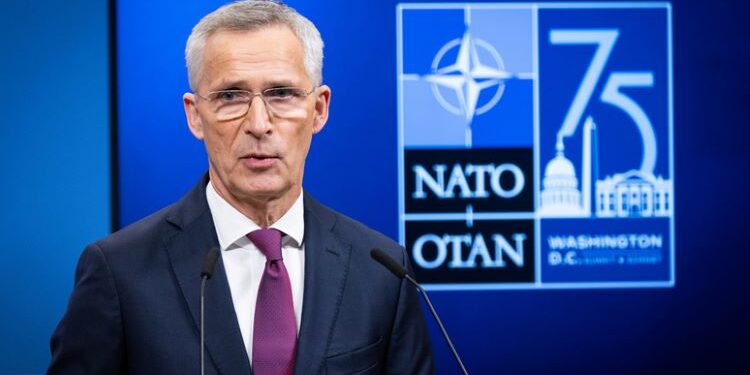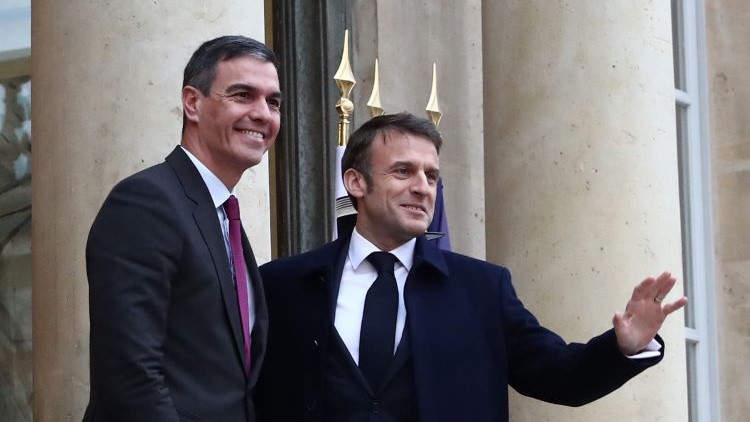Eduardo González
Washington will host the 2024 NATO Summit between tomorrow and Thursday, which marks 75 years since the founding of the Atlantic Alliance and in which Spain will participate just one week after assuming command of the NATO multinational combat group in Slovakia. .
One of the main novelties of this Summit will be the replacement at the head of NATO. On June 20, the acting Prime Minister of the Netherlands, Mark Rutte, became the only candidate to succeed Jens Stoltenberg as Secretary General of the Alliance, after the President of Romania, Klaus Iohannis, announced his withdrawal of his candidacy and that the Hungarian Government decided to lift the veto on the Dutch leader.
To do this, Rutte was forced to assure the ultranationalist Prime Minister of Hungary, Viktor Orbán, that he would not involve his country in future NATO actions to support Ukraine if he were elected Secretary General. In fact, Orbán is going to be in Washington just a few days after assuming the presidency of the EU Council and visiting Moscow, on his own and without entrusting anyone, to carry out “a peace mission” and meet with President Vladimir Putin. Community leaders have already warned that Hungary “has no mandate to engage in dialogue with Russia on behalf of the EU.”
The truth is that Russia and Ukraine are inevitably going to star again in the NATO Summit, the third since the beginning of the Russian invasion (the first took place two years ago in Madrid). As the Alliance itself indicated on its website, the 32 allies will meet in Washington, D.C. “to make key decisions about how to continue protecting its billion citizens as the world faces the most dangerous security environment since the Cold War.”
As Jan Stoltenberg explained at a press conference this Friday, support for Ukraine will be NATO's “most urgent task” and, therefore, he expressed his hope that “the heads of state and government will agree on a substantial package for Ukraine.”. “NATO will be responsible for coordinating and providing the majority of international security assistance,” with a command led by a three-star general and several hundred troops operating from NATO headquarters in Germany. and in the logistics nodes in the eastern part of the Alliance, he continued.
Precisely, the Washington Summit comes just one week after Spain has assumed command of the NATO multinational combat group in Slovakia. Spain succeeds Czechia, which led the group since its creation in 2022. Troops from Czechia, Slovakia and Slovenia are deployed alongside the 700 Spanish soldiers as part of the combat group, reinforcing allied deterrence and defense on the eastern flank of the NATO. Recently, several Spanish soldiers participated in the direction of another multinational exercise, the Slovak Shield, which is part of the largest NATO military exercise since the Cold War. Spain is also contributing to the Canadian-led NATO multinational battle group in Latvia.
On the other hand, Stoltenbeg also reported this Friday that the allies will agree on a financial commitment for Ukraine and that he hopes that more immediate military support for this country will be approved, plus bilateral security agreements (such as the one recently signed in Madrid by the President of the Government, Pedro Sánchez, and the President of Ukraine, Volodimir Zelensky) and the deepening of military interoperability. “Ukraine is moving closer to NATO,” he added.
During the Foreign Ministerial meeting last April, Jens Stoltenberg proposed the creation of a multi-annual financial fund of 100 billion euros to support Ukraine for five years. That same day, the Minister of Foreign Affairs, José Manuel Albares, defended in Brussels greater “predictability” in military and financial aid to Ukraine but avoiding “duplicities” between the European Union and NATO.
On the other hand, the Secretary General also assured on Friday that “deterrence and defense will be other important topics at the Summit.” According to the Secretary General, allies will need to support a commitment to strengthen transatlantic defense industrial cooperation to boost production.
Defense spending
Likewise, Stoltenberg welcomed the fact that 23 allies now spend at least 2% of their GDP on defense. According to a recent Alliance report on spending forecasts for 2024, made public in mid-June, Spain will allocate a total of 19,723 million euros in 2024, 1.28 percent of its GDP, for defense spending, which It makes our country the one that allocates the least funds to this area (based on GDP) among the 32 members of the Alliance.
In 2014, the NATO Summit in Wales set a commitment for all allies to reach two percent in defense spending by 2024. This goal became in 2023 the “minimum investment floor” among allies to face the Russian invasion of Ukraine.
On June 30, 2022, Pedro Sánchez announced at the end of the NATO Summit in Madrid his intention to present before the Cortes Generales (Spanish Parliament) a “country agreement” to reach two percent in Defense spending in 2029 (therefore, five years after the 2024 date set at the 2014 NATO Summit). Two weeks later, the Congress of Deputies approved a proposed resolution of the PP agreed with the PSOE to promote the increase of the Defense budget in order to place it at two percent of the GDP. This agreement was rejected by the then minority partner in the coalition government, Unidas Podemos.
In an interview published yesterday in La Vanguardia, the Minister of Foreign Affairs, José Manuel Albares, reiterated the commitment of the President of the Government to reach 2% of GDP in defense spending by 2029. In addition, Albares indicated that he expects NATO to approve in Washington an action plan of the Alliance for the southern flank, in reference to security in the entire Sahel and Africa, after having introduced that issue at the summit that was held in Madrid in 2022.
...






